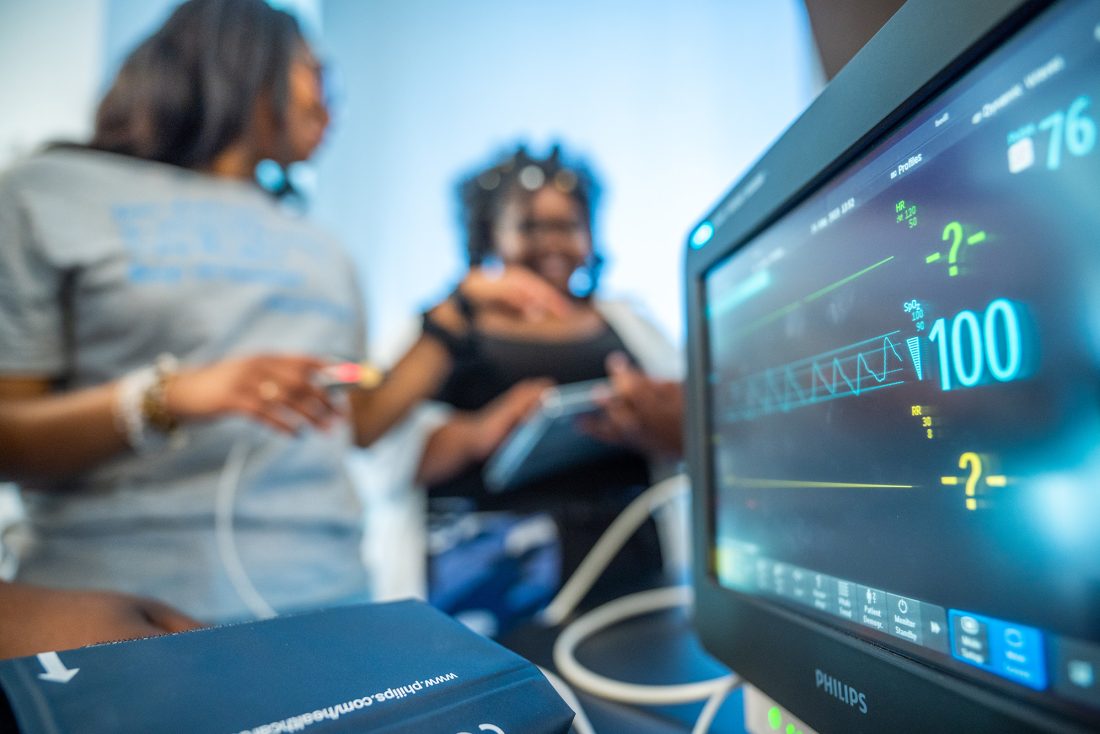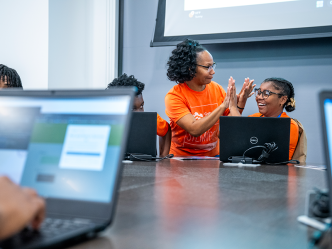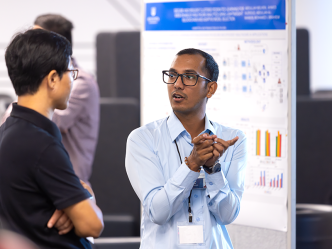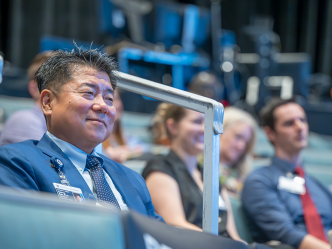Augusta University’s School of Computer and Cyber Sciences (SCCS) and Israel’s Ben-Gurion University of the Negev (BGU) have recently forged an exciting alliance in computer and cyber sciences. The two universities signed a memorandum of understanding to explore collaborative opportunities in graduate education and research, including faculty and student exchanges, collaborative research projects, and a joint/dual doctoral degree program.
The two universities decided to name this partnership CONSENSUS. Beyond being a meaningful name, “consensus” is also the name of one of the key concepts in distributed and fault-tolerant computing. Solutions to the distributed consensus problem allow multiple computers to agree on action without the need for centralized control. Such solutions serve as a foundation for blockchain technology.
“Augusta University continues to build on a strong academic program in cybersecurity, and we are honored to be working with a world-renowned university of Ben-Gurion University of the Negev’s caliber to align our interests,” said Augusta University President Brooks A. Keel, PhD. “Augusta University Provost Neil MacKinnon, PhD, and I always encourage collaborations and partnerships that will provide an outstanding educational opportunity to our students, and we feel confident that this partnership will set our SCCS students up for even greater success in a field that is increasing in demand.”
The idea for a partnership with BGU stemmed from a 2020 visit to Augusta by the Deputy Consul General of Israel in Atlanta, Alex Gandler. During his trip to Augusta, Gandler visited the Georgia Cyber Center, meeting with Keel, MacKinnon, and Alexander Schwarzmann, PhD, dean of the SCCS, and expressed interest in seeing a partnership formed.
“Our faculty includes internationally recognized researchers and young faculty who have earned grants from the National Security Agency, the Department of Defense, and the National Science Foundation,” said Schwarzmann. “Ben-Gurion University is world-renown in the areas of computer science and cybersecurity, and I know this partnership will enhance the education and professional opportunities for our students and promote collaborative research.”
Schwarzmann and Shlomi Dolev, DSc, head of the BGU Negev Hi-Tech Faculty Startup Accelerator and a Rita Altura Trust Chair Professor in Computer Science at BGU, have known each other and collaborated on projects for many years. Dolev is currently serving as a faculty associate on Schwarzmann’s National Science Foundation grant dealing with the integrity and security of electronic systems used for voter check-in in official elections.
Along with the previous collaborations between Schwarzmann and Dolev, SCCS Assistant Professor Nisha Panwar, PhD, is a former doctoral student of Dolev’s. “This partnership will be very beneficial for both of our institutes, the students and the faculty,” Dolev said. “Computer and cyber sciences, particularly cybersecurity, are highly sought after and competitive fields, and we are always looking for ways to help our students and faculty succeed. We want to make sure we equip our students for more than just graduation; we want them to succeed when they join the workforce and in life in general. I am looking forward to being able to work with Alex Schwarzmann and Augusta University toward this common goal.”
The first Consensus research forum took place on May 31, where faculty from both universities presented their research and discussed potential future collaborations. MacKinnon also announced a $100,000 fund to support joint research. The fund will support collaborative research in computer science, computer engineering, cybersecurity, and information systems. The fund will support faculty research stipends, provide scholarships for doctoral students, and facilitate travel for collaborative initiatives. The primary goal is to promote the initiation of research that will lead to the development of competitive research proposals for funding agencies like the National Science Foundation (NSF) and the Binational Science Foundation (BSF).
“This fund provides an excellent opportunity for researchers to explore new research directions and mentor graduate students. By supporting exploratory investigations, acquiring preliminary data, and developing new algorithms, protocols, and system prototypes, we can lay the groundwork for significant future research proposals,” said Schwarzmann.
Ben-Gurion University of the Negev is one of Israel’s leading research universities and among the world leaders in many fields, with approximately 20,000 students and 4,000 faculty members between the institution’s 10 colleges and schools.
As faculty members from Augusta University and Ben Gurion University join forces, their collaboration will play a vital role in nurturing a vibrant research environment and encouraging broad cooperation to develop cutting-edge solutions in computer and cyber sciences.
The two universities have also begun formulating the future joint/dual PhD program. The doctoral students will have an advisory committee composed of faculty from both universities, they will need to meet the degree requirements of each university and satisfy the residency requirement with at least one year of study at each university. This promises to be a unique degree program that offers superior education at the doctoral level, and it should be attractive to students from each country as well as students from the broader international community, Schwarzmann said.
 Augusta University
Augusta University




